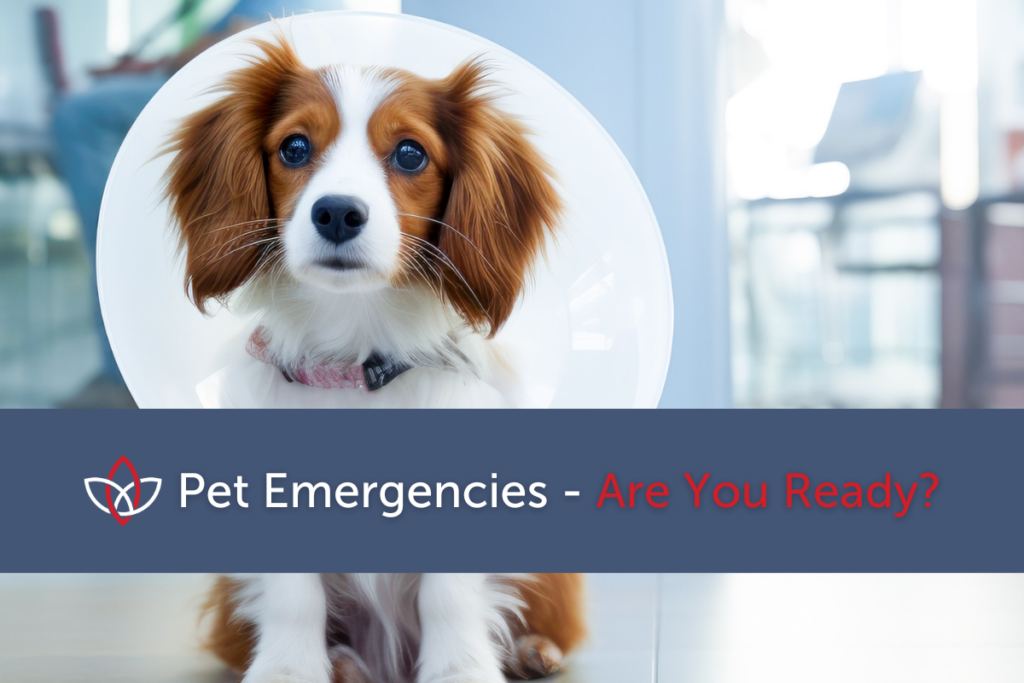
Pets are part of the family and no matter what happens, we need to be prepared to take care of them. That’s why it’s so important to understand common pet emergencies and when to seek veterinary care.
So, what constitutes an emergency?
At Partner, we frequently treat conditions that require immediate attention, including…
-
Choking
-
Difficult breathing
-
Heat stroke
-
Ingestion of a foreign object
-
Seizures
-
Trauma and eye injuries
-
Poisoning
-
Sudden collapse, unresponsiveness
-
Vomiting and diarrhea
Of course, these aren’t all of the potential emergency situations your pet may experience. Each is different, and any time you suspect that your pet is experiencing an emergency it’s important to contact a veterinary professional as soon as possible.
For a more complete list of common veterinary emergencies, visit our Emergency Services page.
But how can you be sure?
This is when we wish our pets could talk and tell us what’s wrong. Since that’s unlikely, we need to be ready to make the call ourselves. Some situations are unmistakable—such as gasping for air, profuse bleeding, or experiencing seizures—and these scenarios clearly demand immediate attention.
Less obvious situations are usually indicated first by a change in your pets’ behavior. For instance, your normally cheerful and lively dog might suddenly become lethargic, while your typically quiet cat may begin meowing incessantly. Your pet may also exhibit unresponsiveness to your voice or touch. Gastric emergencies, in particular, could manifest as persisting vomiting or severe diarrhea in your pet.

It’s an emergency—now what?
As hard as it might be, the best thing to do is remain calm and make rational decisions. Maintaining a clear-headed approach allows for an accurate assessment of the situation when you call your vet. They can provide further instructions and guide you on the best course of action and tell you if emergency care is required.
Be ready before an emergency
You can’t predict an emergency, but you can plan for one. Here are 5 things you can do…
1. Pre-register Your Pets Online
Pre-registering with Partner Veterinary helps expedite the check-in process should an emergency strike. It’s easy, it’s free, and it will be one less thing for you to worry about if your pet becomes sick or injured. Click HERE to pre-register your pets.
2. Keep Your Pet’s Medical Records On-Hand
Having a list of current medications, knowing your pet’s prior illnesses or injuries, and providing bloodwork taken within the last three months may provide important insight into your pet’s health. Ask your veterinarian for a copy of your pet’s medical record so that it’s easily accessible in case of an emergency. It could save precious time.
3. Call Before You Arrive
By gathering additional information about your pet’s illness or injury, we can help to determine their level of urgency. We can answer questions you may have about the triage process and prepare our team for your pet’s arrival.
4. Understand Your Financial Options
Being financially prepared before emergencies can help to reduce stress. We recommend getting pre-approved for a financial option such as CareCredit or Scratch Pay. Having an option arranged ahead of time gives you peace of mind in the event of an emergency.
5. Consider Pet Insurance
Establishing pet insurance BEFORE your pet gets sick or injured can become invaluable if your pet has an emergency. Having your pet insured can help alleviate some of the cost of emergencies and specialty care needs. Not sure where to begin? Here are a few options: Nationwide, Trupanion, and Embrace.
Remember, being prepared and acting promptly in a pet emergency can significantly impact the outcome. Your pet’s well-being is our utmost priority, and we are here to support you every step of the way.
Should you find yourself in the midst of a veterinary emergency, we can help!
Call our Frederick location at 301.200.8185
Call our Richmond location at 804.206.9122
